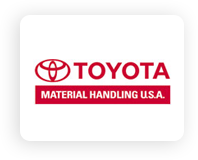Yard ramps are specialized equipment designed to serve as portable loading docks. These ramps can be easily transported to various locations within your shipping and receiving yard, ensuring forklift operators have seamless access to shipping containers or trailers. Employing a yard ramp significantly enhances the safety and efficiency of loading and unloading operations.
Yard ramps facilitate the transfer of heavy loads from ground level to the height of a truck trailer or loading dock, thereby eliminating the necessity for permanent loading docks. The only prerequisite is ample space for a truck to maneuver into position.
Operational Mechanism of Yard Ramps
Yard ramps provide an effective and efficient solution for moving heavy items and loads. They utilize hydraulic systems to raise or lower items to the required height much faster than traditional industry ramps. With a single-cylinder hydraulic system, the ramp can be raised more evenly compared to double-acting ramps.
To operate a yard ramp, position it correctly, close the pump release valve, and insert the pump handle into the pump opening. Then, crank the handle until the ramp reaches the desired height. Position the ramp’s lip over the trailer bed using a forklift, and open the forklift’s release valve to secure the ramp in place.
Applications of High-Capacity Yard Ramps
High-capacity yard ramps are versatile and can be used in numerous applications, including:
- Warehouse equipment
- Heavy equipment rentals
- Vehicle ramps
- Tractors, bobcats, skid steers, and other heavy equipment
- Flatbed truck loading and unloading
- Military applications, such as loading military equipment and vehicles
- Industrial equipment applications
- Construction machinery, equipment, and supplies
Benefits of Yard Ramps
Yard ramps are engineered to boost productivity, maximize space, and enhance safety. Besides their durable construction, they offer several additional features:
Easier Operation The pump is strategically located on the outer portion of the ramp, ensuring convenient access.
Faster Raise Times Yard ramps can be raised 2.5 times faster than traditional ramps.
Less Wear and Tear The rotation occurs along the positioning sleeve rather than the ramp connection, reducing wear and tear.
Greater Stability The centrally located cylinder maintains stability while raising or lowering the ramp, minimizing the risk of tipping.
Solid-Filled Pneumatic Tires These tires are ideal for rugged terrain and eliminate concerns about air pressure issues or punctures.
Safety Guidelines for Yard Ramps
Although yard ramps are built with safety features, adhering to basic safety guidelines is crucial when operating a forklift on a ramp. Always read the owner’s manual before using the ramp, and ensure that only trained personnel operate it.
Secure the ramp before any loading or unloading tasks. The owner’s manual provides all necessary precautions and instructions. Reviewing OSHA ramp guidelines is also recommended.
Types of Yard Ramps
There are various types of yard ramps available, each catering to specific needs:
Mobile Yard Ramps These ramps enable the creation of a dock at any location with open yard space, offering an efficient method for loading and unloading freight with forklifts.
Portable Yard Ramps Ideal for shipments from ground level to trucks, these ramps come in steel and aluminum, depending on weight requirements.
Portable Steel Yard Ramps Constructed from premium steel with serrated grating for extra traction.
Dock-to-Ground Ramps These ramps provide a semi-permanent solution for loading and unloading, capable of handling weights up to 30,000 pounds.
Ground-to-Truck Yard Ramps Designed for industrial applications, these ramps facilitate easy access for semi-trucks to the ground and are available in steel and aluminum.
Heavy-Duty Portable Loading Docks with Dock Platforms Suitable for facilities without permanent docks, these ramps can handle capacities up to 60,000 pounds and can be placed in space-constrained areas.
Safety Tips for Yard Ramp Use
Key safety tips for using yard ramps include:
- Use wheel chocks to prevent dangerous movements during loading tasks.
- Never exceed the ramp’s maximum load capacity.
- Ensure the ramp’s lip is properly connected to the truck or dock.
- Always perform loading and unloading on a solid, level surface.
- Operate at speeds not exceeding 5 MPH.
- Regularly inspect the ramp for signs of damage or rust, and ensure it has sufficient hydraulic fluid.
Frequently Asked Questions about Yard Ramps
What is the Difference Between a Yard Ramp’s Positioning Sleeve and Towbar? The positioning sleeve assists in placing the ramp correctly, while the towbar is used to tow the ramp short distances at 3-5 MPH.
What Kind of Tires are on Mobile Yard Ramps? Most mobile yard ramps are equipped with 18″ pneumatic tires that do not require air.
What are the Height Ranges of the Ramps? Traditional ramps range from 38″ to 65″ in height, while dock-to-ground ramps range from 38″ to 60″.
How are the Ramps Secured? Ramps are secured to trailers with durable safety chains, and dock-to-ground ramps are bolted to the dock face with chains and brackets.
Are Rental Yard Ramps Available? Yes, yard ramps are typically available for short-term rental.
Can Yard Ramps be Used on a Slope? It is advisable to avoid using yard ramps on slopes. Heavy loads should not be transported over a gradient exceeding 3-5%, and lighter loads should be restricted to a maximum gradient of 10%.
Stationary vs. Portable Yard Ramps
Stationary ramps offer greater capacity and can facilitate the loading of more trucks compared to portable ramps. However, portable ramps allow for quicker and more efficient loading, with one-cylinder hydraulics enabling swift adjustments to truck height. The choice between stationary and portable ramps depends on your specific application needs.
Why Choose Medlin Ramps?
At Medlin Ramps, we are dedicated to supporting all your warehousing projects and addressing any questions you may have about yard ramps and their safety features. With our extensive experience, you can trust our expert recommendations. We also assist in selecting the best accessories to complement your chosen yard ramp.












